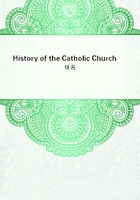
第58章
Calvin's acts of cruelty were not the result of violent outbursts of temper. By nature cold and immovable, he did not allow himself to be hurried to extremes either by anger or by passion. How he succeeded in maintaining his position for so many years in Geneva is intelligible only to those who understand the strength of the religious fanaticism that he was able to arouse amongst his followers, the terror which his spiritual and temporal punishments inspired among his opponents, his own wonderful capacity for organisation and administration, the activity of his ministers and spies, and the almost perfect system of repression that he adopted in his two-fold character of religious and political dictator.
To strengthen his position and to provide for the continuance of his system he established an academy at Geneva (1558) principally for the study of theology and philosophy. It was attended by crowds of scholars from Switzerland, France, Germany, the Netherlands, England, and Scotland. By means of the academy, Calvinism was spread throughout Switzerland notwithstanding the opposition of the Zwinglian preachers, and Calvin's system of ecclesiastical organisation became the model aimed at by his disciples in most countries of Europe, notably France, the Netherlands, and Scotland. The Zurich school, at the head of which stood Bullinger, did not yield ground to the new teaching without a severe struggle, and Calvin found himself obliged to come to terms with them in the /Consensus Tigurninus/ (1549). In his desire to secure the religious unity of Switzerland he had no difficulty in abandoning or minimising his own doctrine in the hope of overcoming or winning over his opponents. After a life of tireless energy his health began to fail in 1561, and three years later he passed away (1564).
Calvin was a man of morose and gloomy temperament, severe even to harshness with his followers, and utterly devoid of human sympathy.
Not so however his disciple and assistant Theodore Beza. The latter was born in Burgundy in 1519, and after completing his classical studies at Orleans he drifted to Paris, where he plunged into all the pleasures and dissipations of the capital, and where at first he was remarkable more for his love songs than for his theology. He devoted himself to the study of law, and in 1539 he took his licentiate at Paris. Having become attached to the opinions of the Swiss Reformers he left Paris and settled at Geneva, where he fell completely under the influence of Calvin, but not even Calvin's temperament and system could change his naturally gay and sympathetic disposition. For this reason he became a general favourite, and did much to win the good-will of those who felt themselves rebelled by the harshness of the dictator. Beza was, besides, a man of very superior ability, and had been especially well equipped in Hebrew and in the classics. He was master of a striking style whether he wrote in French or in Latin, eloquent beyond most of his contemporaries, and in every way capable of making a good impression not merely on the ordinary citizen but on the more educated classes. His writings in defence of Calvin's system and his translations of the Scriptures gave him a great reputation throughout Europe, and gained for him a commanding position in Geneva, where he died in 1605.
Calvin's system was modelled to a great extent on the doctrines of Luther and Zwingli, but it was coloured largely by his own harsh and morose disposition. For the distinguishing feature of his system, namely, absolute predestination, he was dependent largely upon the works of Wycliffe. Like Luther, he began with the assumption that the condition of man before the Fall was entirely natural, and that consequently by the Fall he was deprived of something that was essential to his nature and without which human nature was completely corrupted. Man was no longer free, and every act of his was sinful.
His want of freedom was the result of the play of external forces directed and arranged by God, rather than of any internal necessity by which he was forced to sin. God is, according to Calvin, the author of sin, in the sense that he created a certain number of men to work evil through them in order that He might have an opportunity of displaying the divine attribute of mercy. Hence the motive of God in bringing about evil is different from the motive of the sinner, and therefore though the sinner is blameworthy God is nowise responsible for his crime.
Adam sinned because it was decreed by God that he should fall in order that the divine mercy should be manifested to the world. For the same reason God did not intend that all should be equally good or that all should be saved. He created some men that they might sin and that their punishment might afford an example of God's justice, while He made others that they might be saved to show His overwhelming mercy.
The former are condemned to hell by an irreversible decree, the others, the elect, are predestined absolutely to glory. The elect are assured of justification through the merits of Christ, and once justified they are always justified, for justification cannot be lost.
Faith such as that advocated by Luther was the means of acquiring justification, but, mindful of his other doctrine that even the best of men's works are sinful, Calvin took care to explain that justifying faith was only the instrument by which a man laid hold of the merits of Christ. It was like a vessel which, though containing some priceless treasure, was in itself worthless.